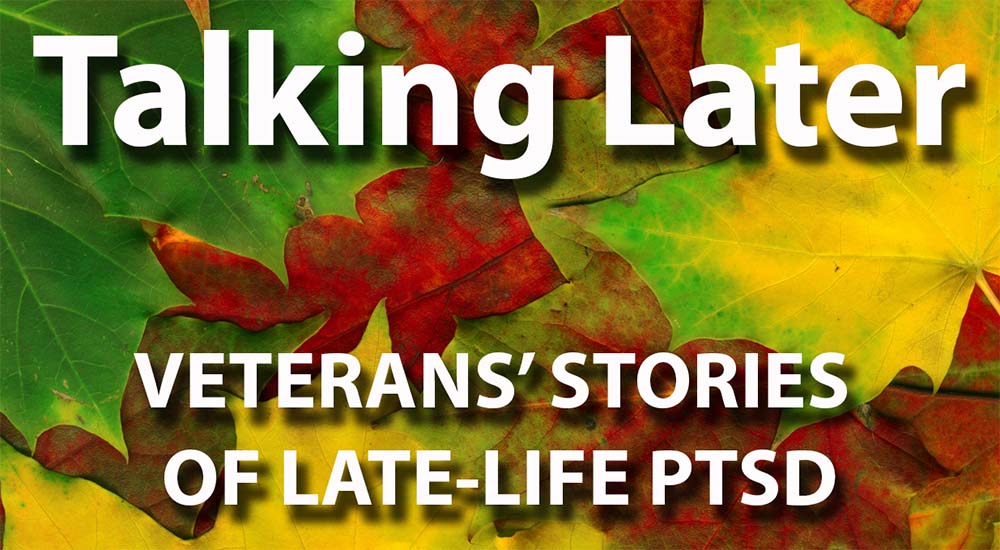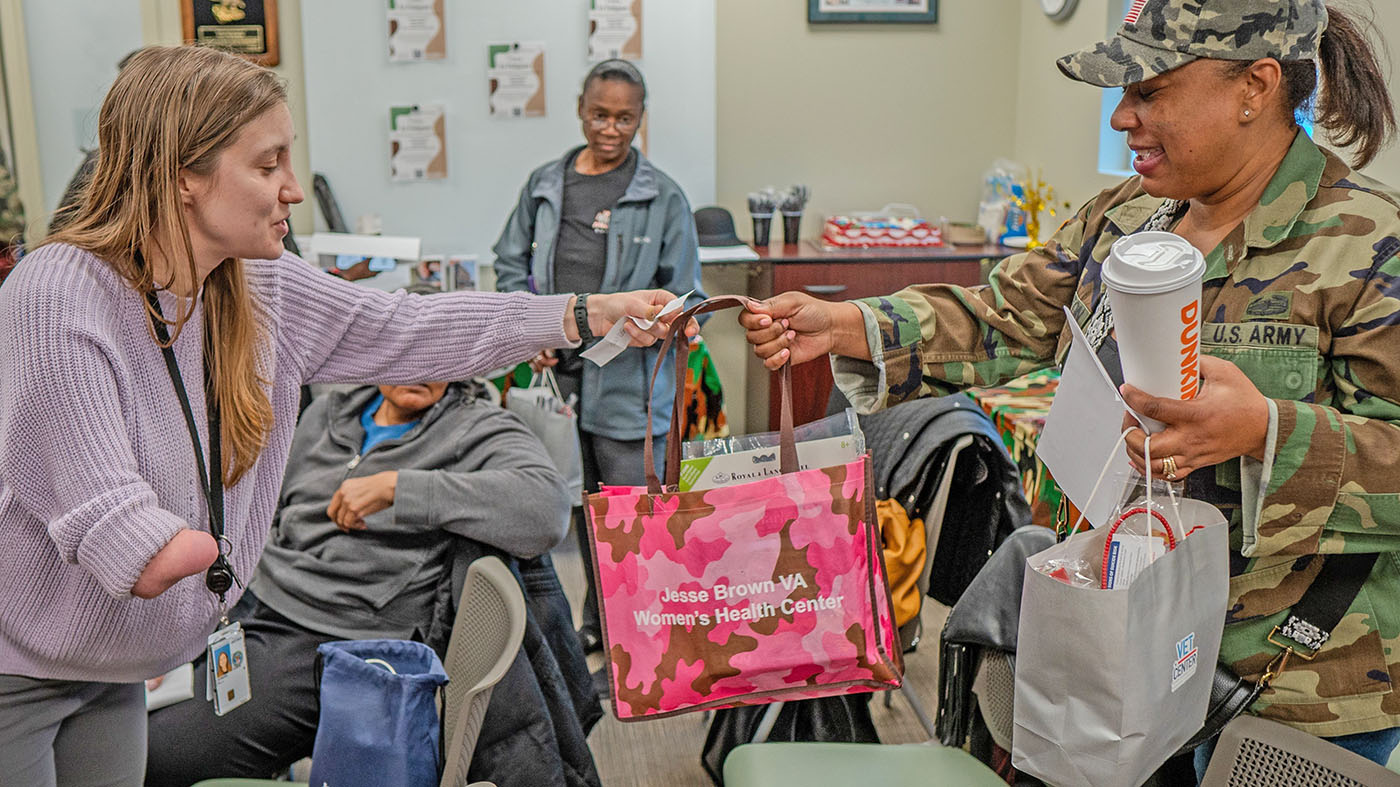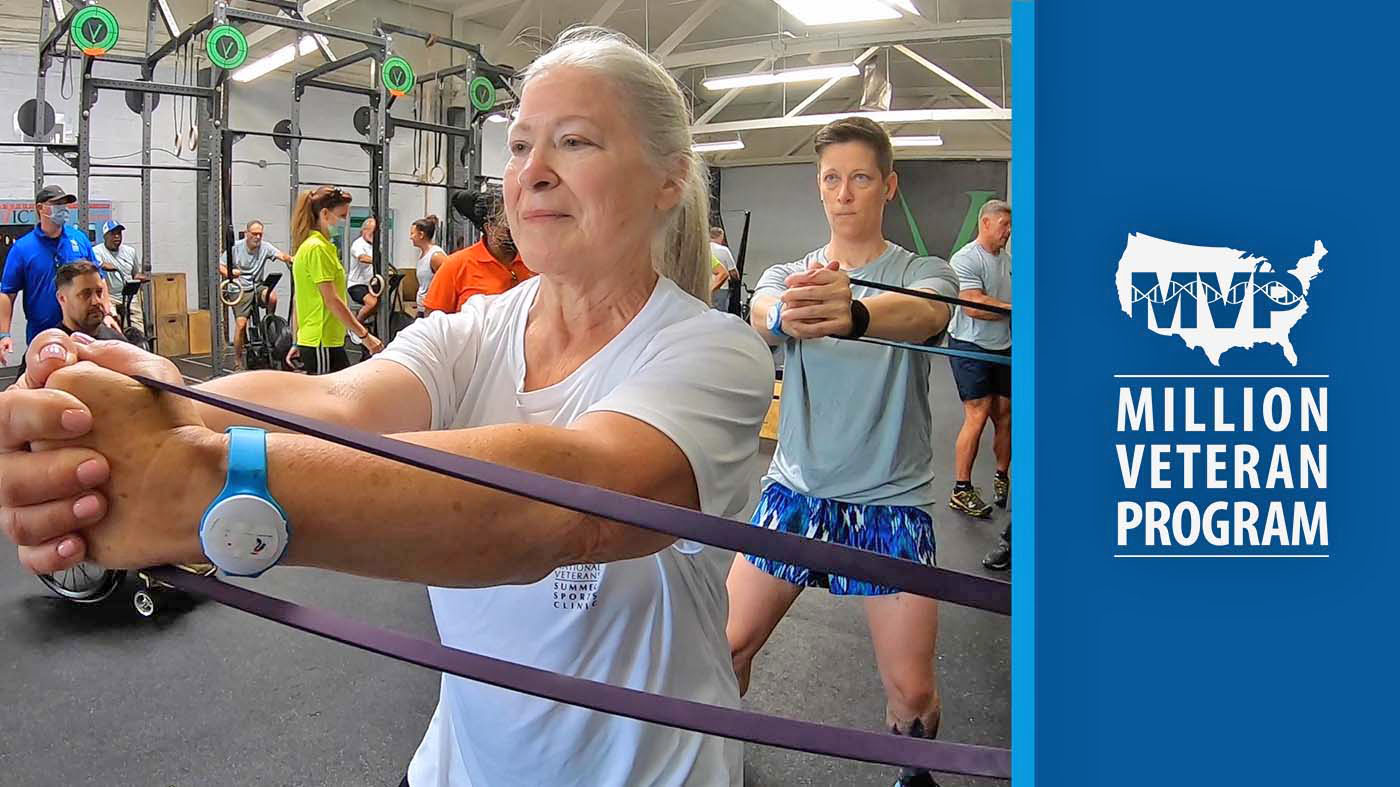One in 10 older Veterans experience late-life PTSD, and even more report increase in thinking about their military experiences as they age. PTSD is a mental health condition that can occur in the aftermath of experiencing or witnessing a traumatic event.
While some of us may be familiar with PTSD as a result of combat, natural disasters or other traumatic events, many of us are less familiar with the ways PTSD can resurface, or emerge, for the first time as we age.
Older Veterans are sometimes reminded of traumas they avoided thinking about or that had not previously bothered them. This is called Later-adulthood Trauma Re-engagement (LATR, pronounced later). It can start when older Veterans have experiences common to aging, such as illness, hospitalizations, declining health, retirement or bereavement.
Skills help protect from negative effects of trauma
In the face of traumatic events, many Veterans demonstrate psychological resilience, the ability to cope with the traumatic experience through personal strengths and use of effective coping skills. These skills allow them to protect themselves from the potential negative effects of trauma.
Our podcast series, Talking Later, is about PTSD and resilience, connection and making meaning in later life.
In Talking Later, older Veterans share their stories of trauma and resilience. Each episode begins with a real Veteran’s story. Tune in to hear Veterans share their ups and downs, and ways that they coped with what they have gone through.
Recent highlights from the podcast:
- “I wear a baseball hat that identifies me as a Veteran. I didn’t start wearing that until the past few years. I spent a long time hiding my service. I don’t wanna do that anymore.”
- “I feel proud of serving my country, but I saw terrible things and I lived with that for years.”
- “I still have bad times about that time period.”
- “I loved the military but some of my experiences have left me with PTSD.”
- “I remember saying, ‘If I don’t die in Vietnam, I’m going to live to be 150.’”
- “I hadn’t realized the extent to which my PTSD had impacted my relationships. I had alienated my friends, my children and my family.”
As each story unfolds, the podcast’s co-hosts, VA clinicians, discuss what the Veteran’s story can teach us about PTSD, resilience, connection and making meaning of the things we experience during our lifetime.
You can find Talking Later on your favorite podcast app on your smartphone by searching Talking Later, or on your computer, VA iPad, tablet or phone, at this link: https://www.spreaker.com/show/talking-later.
The stories and conversations in Talking Later are meant to be shared with Veterans who have PTSD, those who care for them and those who love them.
This podcast was produced by the VA Employee Education System (EES) and supported by the VA Office of Rural Health, with subject matter input from the VA New England Geriatric Research Education and Clinical Center, and the Behavioral Science Division of the National Center for PTSD.
Crisis line support
If you are a Veteran in crisis – or you’re concerned about one – free, confidential support is available 24/7. Call the Veterans Crisis Line at 1-800-273-8255 and press 1, send a text message to 838255 or chat online.
Topics in this story
More Stories
Navy Veteran and president of the American Medical Association got a colonoscopy and encourages other Veterans to do the same.
Chicago Vet Center and VA gave women Veterans information on VA services available to them.
MVP’s research informs personalized care for Veterans, supporting whole health and beyond.







My PTSD comes from a bigoted racist mother who blamed me for forty-seven years as the reason she did not graduate high school.
Semper Fidelis
Dear Mr. Nosca
We are so sorry to hear that you are feeling more bothered by your PTSD. We would encourage you to seek mental health assessment and treatment at your local VA where you might learn about treatment options. There are many approaches that Veterans find helpful. You can also learn more about PTSD at https://www.ptsd.va.gov/. If you aren’t signed up for VA health care yet, we encourage you to apply at https://www.va.gov/health-care/how-to-apply/
I’m a 78 year old disabled US Army Vietnam veteran and my PTSD bothers me more now than when I was younger. My best Army brother has been dead for two years now.
I read an article awhile back that veterans suffering with PTSD were benefiting from the use of an interactive combat video. I would like to try that therapy and see if it helps me cope better with my service connected PTSD. Please let me know how I can find out more about this VA program and obtain the combat video disk.
Thank you